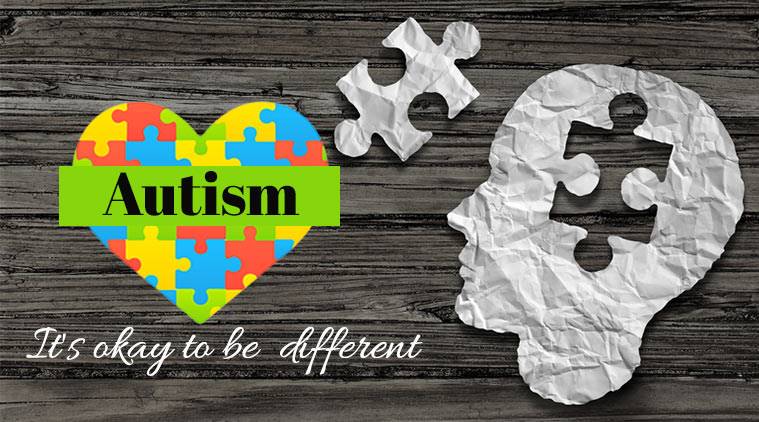 Most services to address autism in India are currently based in urban centres and delivered by specialists, which means most families have no access to help for their children. (Designed by Nidhi Mishra)
Most services to address autism in India are currently based in urban centres and delivered by specialists, which means most families have no access to help for their children. (Designed by Nidhi Mishra)
Autism is a developmental disorder, which causes social communication difficulties and impacts one in a 100 children. India will have more than 2 million children with autism under the age of 10 years. Most services to address autism in India are currently based in urban centres and delivered by specialists, which means most families have no access to help for their children.
Now, a parent-mediated programme for autism has been launched that will train Accredited Social Health Activist (ASHA) workers to visit homes. These government community health workers will then deliver the programme under supervision of a mental health NGO.
The NGO, Sangath, which started out 20 years ago as Goa’s first multi-disciplinary child development clinic, has been working across the country and developing packages of care for community delivery for a range of mental health conditions. Sangath shares a Medical Research Council UK grant with the University of Manchester to evaluate a culturally sensitive autism intervention, delivered by health workers in Delhi.
Noted psychiatrist and founder of Sangath, Dr Vikram Patel said the project, COMPASS (Communication centered Parent mediated intervention for Autism Spectrum Disorders in South Asia), is a collaboration among University of Manchester, Harvard Medical School, Sangath, Maulana Azad Medical College and associated with Lok Nayak Hospital, AIIMS, National Health Systems Resource Centre and Kings College London. COMPASS will train ASHA workers to visit families and deliver the programme under the supervision of the NGO’s health staff, said Dr Patel.
In COMPASS, the team will train ASHA workers in community settings such as households. This effort is aimed at addressing the challenges of families who currently visit AIIMS, New Delhi, and other government centres for services but find it difficult to manage the frequent travel to avail of centre-based services. The parent-mediated intervention for Autism Spectrum Disorders for South Asia Plus (PASS Plus), which will be evaluated, has already been field-tested in Goa and Kolhapur in Maharashtra.
This work will provide the first trial evidence to inform the ambitious plans of the Government of India to scale up community-based interventions for ASD through programmes such as the Rashtriya Bal Swasthya Karykram.
The mainstay of management for disabilities is a home-based approach where parents play a pivotal role. Dr Gauri Divan, who leads the project in India, said: “This is an opportunity for us to work towards filling the gap of autism care in India. We are excited to be working with the ASHA workers in Delhi. We have seen that they have sensitive counseling skills, which will help us train them to be effective delivery agents for our autism intervention.”
A parent of a child with autism, Shamika Ravi, said: “Knowledge of autism is limited everywhere in India, and the gap is particularly severe in under served communities. We endorse this effort and eagerly await empirical evidence, which can be scaled up across the country.”